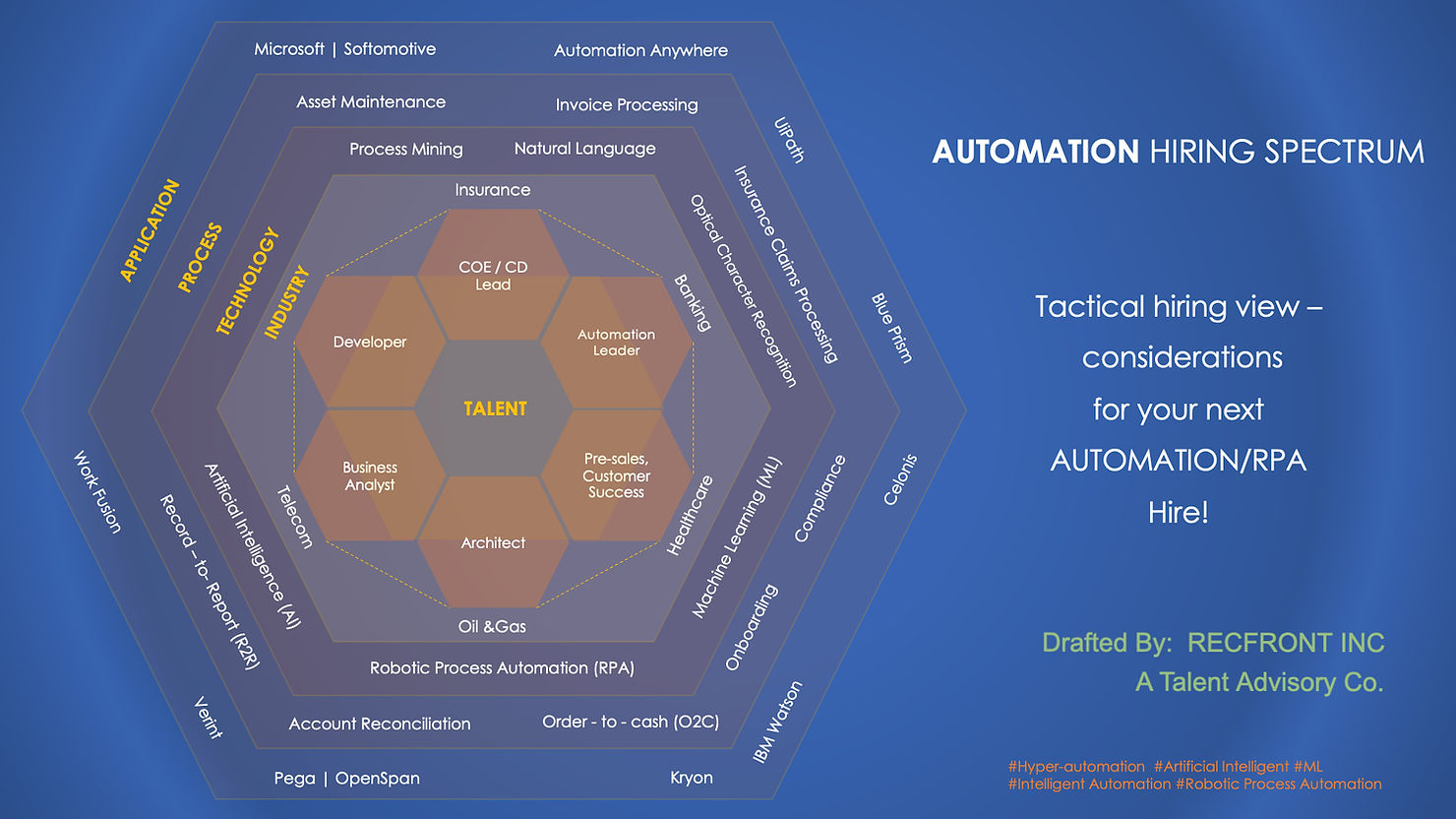Introduction
In today’s fast-paced digital world, automation and Robotic Process Automation (RPA) are reshaping industries by driving efficiency, reducing costs, and improving accuracy. However, hiring the right talent for automation roles can be a complex task, given the diverse range of technologies, industries, and processes involved. This guide explores the “Automation Hiring Spectrum” and provides strategic insights for your next RPA hire.
What is the Automation Hiring Spectrum?
The Automation Hiring Spectrum is a comprehensive framework that outlines key considerations for hiring automation and RPA talent. It integrates various dimensions such as application, process, technology, industry, and roles, providing a tactical view for organizations seeking to strengthen their automation capabilities.
Key Dimensions of the Automation Hiring Spectrum
- Applications
Automation platforms like UiPath, Blue Prism, Automation Anywhere, and Microsoft Power Automate are at the forefront of the RPA ecosystem. These platforms provide tools for invoice processing, optical character recognition (OCR), and process mining, making them essential for automation professionals. - Processes
Industries today leverage RPA for a range of processes, including:- Insurance Claims Processing
- Natural Language Processing (NLP)
- Account Reconciliation
- Onboarding Automation
- Technologies
The technology stack for automation extends beyond traditional RPA tools. It encompasses:- Artificial Intelligence (AI)
- Machine Learning (ML)
- Intelligent Automation
- Industries
Automation is transforming diverse industries like:- Banking
- Healthcare
- Telecommunications
- Oil & Gas
- Talent Roles
The core roles within automation include:- Developers: Technical experts who build and deploy automation workflows.
- Business Analysts: Bridge the gap between business needs and technical solutions.
- Architects: Design and implement scalable RPA solutions.
- Automation Leaders/COE Leads: Oversee and manage automation projects.
- Pre-sales and Customer Success Experts: Ensure client satisfaction and alignment of automation solutions with business goals.
Why is Talent Critical for Automation Success?
Successful automation initiatives rely heavily on skilled professionals who can leverage the right tools and strategies. Whether you need a developer to optimize workflows or an automation leader to drive innovation, hiring the right talent ensures long-term success.
How to Attract Top Automation Talent?
To attract and retain top-tier automation professionals:
- Leverage Employer Branding: Showcase your company’s cutting-edge automation projects.
- Offer Competitive Packages: Invest in upskilling programs and certifications.
- Define Clear Career Paths: Highlight growth opportunities within your organization.
Conclusion
The Automation Hiring Spectrum is an invaluable guide for organizations looking to build robust automation teams. By understanding the interplay of applications, processes, technologies, industries, and roles, companies can make informed hiring decisions and stay ahead in the competitive automation landscape.
For expert assistance in recruiting RPA professionals, trust talent advisory services like Recfront Inc. to streamline your hiring process.






